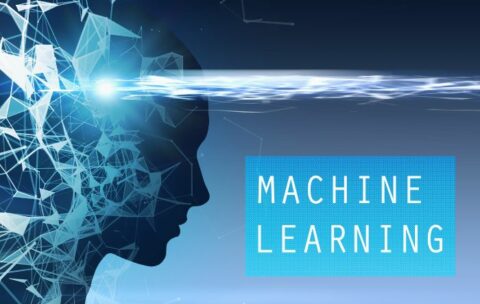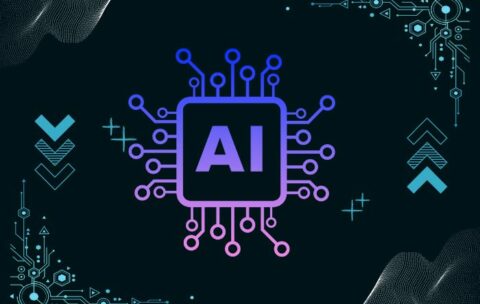Trending Courses
October 24, 2023 2023-11-14 19:32Trending Courses


Your Learning, Your Way
Trending Courses
Are you ready to take your skills and knowledge to the next level? Enrolkart Trending Courses page is your gateway to staying at the forefront of your field and securing a competitive edge in your career.

Advanced Machine Learning Techniques and Applications
19 Lessons
Beginner
What you'll learn
Deep Learning Foundations: Understand the principles underlying deep learning and neural networks, including activation functions, backpropagation, and gradient descent.
Convolutional Neural Networks (CNNs): Learn how to design and implement CNNs for tasks like image classification, object detection, and image generation.
Recurrent Neural Networks (RNNs): Explore RNN architectures and applications in sequence modelling, time series prediction, and natural language processing.
Generative Adversarial Networks (GANs): Dive into GANs and discover how to create realistic data using adversarial networks, including generating images, text, and more.
Transfer Learning and Fine-Tuning: Master the art of leveraging pre-trained models for various tasks, adapting them to your specific applications through fine-tuning.
Machine Learning for Real-World Problem Solving
17 Lessons
Beginner
What you'll learn
Practical Machine Learning Workflow: Understand the end-to-end process of applying machine learning to real-world problems, from data preprocessing and feature engineering to model selection and deployment.
Data Preprocessing and Cleaning: Learn techniques to handle missing data, outliers, and noisy data, ensuring that your datasets are ready for effective analysis.
Exploratory Data Analysis: Develop the ability to visualize and explore data to uncover patterns, trends, and potential insights that can inform your machine learning approaches.
Feature Engineering: Acquire the skills to transform raw data into meaningful features that enhance the performance of machine learning models.
Regression Models: Learn how to apply regression techniques to predict continuous
Ethical Considerations in Machine Learning and AI
17 Lessons
Beginner
What you'll learn
Ethical Foundations in AI: Develop a solid grasp of the fundamental ethical principles that underpin responsible AI and machine learning development.
Bias and Fairness in Algorithms: Understand the potential biases present in algorithms and learn techniques to detect, measure, and mitigate bias to ensure fairness and equity.
Transparency and Explainability: Learn how to make AI decisions more transparent and interpretable, enabling users to understand the reasoning behind algorithmic outcomes.
Privacy and Data Protection: Gain insights into the ethical considerations surrounding data collection, usage, and protection in AI systems, respecting user privacy.
Algorithmic Accountability: Understand the concept of accountability in AI, and learn how to attribute responsibility and address unintended consequences of algorithmic decisions.
Effective Data Visualization Techniques for Insights
18 Lessons
Beginner
What you'll learn
Principles of Data Visualization: Understand the fundamental principles that guide the creation of effective and meaningful data visualizations.
Choosing the Right Visualizations: Learn how to match different types of data and analytical objectives with appropriate visualization techniques.
Basic Chart Types: Explore common chart types such as bar charts, line charts, and pie charts, and understand when and how to use them.
Advanced Visualization Techniques: Delve into more complex visualizations, including scatter plots, bubble charts, heatmaps, and treemaps, to convey intricate patterns and relationships.
Time Series Visualizations: Gain the skills to visualize time-based data effectively using techniques like time series graphs and calendars.
Data Visualization and Storytelling for Decision Makers
18 Lessons
Beginner
What you'll learn
Data Visualization Fundamentals: Understand the principles of data visualization and its role in conveying information and insights effectively.
The Psychology of Visual Communication: Learn how human perception is influenced by colours, shapes, and layout, allowing you to design visuals that resonate with decision makers.
Choosing the Right Visualizations: Gain insights into selecting the appropriate visualization techniques for different types of data and analytical objectives.
Crafting Data-Driven Narratives: Develop the ability to weave data into engaging stories that resonate with decision makers, fostering understanding and engagement.
Visual Design Techniques: Learn how to use colours, shapes, typography, and layout to create visually appealing and persuasive data visualizations.
Advanced Data Visualization Strategies for Complex Data
16 Lessons
Intermediate
What you'll learn
Advanced Visualization Techniques: Explore innovative techniques tailored for complex data, including network visualization, high-dimensional data reduction, and interactive visualizations.
Understanding Complex Data Challenges: Gain insights into the unique challenges posed by intricate datasets and strategies to overcome them.
Network Visualization: Learn how to visually represent and uncover relationships, connections, and structures within network data.
Multivariate Data Visualization: Master techniques to effectively display and interpret data with multiple variables, revealing patterns and correlations.
High-Dimensional Data Handling: Understand dimensionality reduction methods to transform high-dimensional data into manageable visual representations.
Mastering Big Data Analytics and Distributed Computing
17 Lessons
Intermediate
What you'll learn
Foundations of Big Data Analytics: Understand the key concepts and challenges associated with big data analytics, including volume, variety, velocity, and veracity.
Distributed Systems Fundamentals: Gain a strong foundation in distributed computing, including parallel processing, distributed file systems, and scalability.
Scalable Data Storage and Retrieval: Learn about distributed storage solutions and techniques for efficient data retrieval in distributed environments.
Distributed Data Processing Frameworks: Master popular frameworks like Hadoop and Spark to process and analyze large datasets across clusters of computers.
In-Memory Computing Techniques: Explore the advantages of in-memory computing for real-time data processing and analytics.
Big Data Engineering and Scalable Distributed Systems
16 Lessons
Beginner
What you'll learn
Foundations of Big Data Engineering: Understand the fundamental concepts of big data, its challenges, and the role of distributed systems in processing vast datasets.
Scalable Architectures: Learn the principles of designing architectures that can scale seamlessly to handle growing volumes of data and increased processing demands.
Data Storage Strategies: Explore various data storage solutions, from distributed file systems to NoSQL databases, and learn how to choose the right one for different scenarios.
Efficient Data Ingestion and Transformation: Master techniques for ingesting data from diverse sources, cleaning and transforming it, and preparing it for analysis.
Distributed Data Processing Frameworks: Gain proficiency in using popular frameworks like Hadoop and Spark to process and analyse large datasets across distributed environments.
Advanced Techniques in Big Data Processing and Distributed Computing
17 Lessons
Beginner
What you'll learn
Advanced Data Partitioning Strategies: Explore sophisticated techniques to optimally partition and distribute large datasets across distributed systems.
Parallel Processing and Optimisation: Master the art of parallelism, learning how to efficiently execute tasks across multiple nodes for enhanced performance.
Distributed Query Optimisation: Understand advanced methods for optimising queries in distributed databases and systems.
Advanced Algorithms for Data Analysis: Dive into intricate algorithms that facilitate efficient data analysis and manipulation in distributed environments.
Real-time Stream Processing: Develop expertise in processing data streams in real time, extracting insights from dynamic and continuous data sources.
Statistical Analysis for Data Science: Fundamentals and Applications
18 Lessons
Intermediate
What you'll learn
Introduction to Statistical Analysis: Understand the fundamental concepts of statistical analysis and its role in extracting insights from data.
Exploratory Data Analysis: Learn techniques to summarise and visualise data, identifying patterns, trends, and potential outliers.
Probability and Probability Distributions: Gain proficiency in understanding and working with probability concepts and various probability distributions.
Sampling Techniques and Distributions: Explore different sampling methods and understand the properties of sampling distributions.
Statistical Inference and Hypothesis Testing: Master the art of drawing conclusions about a population using sample data through hypothesis testing.
Advanced Statistical Methods in Data Science: Techniques and Insights
16 Lessons
Intermediate
What you'll learn
Multivariate Analysis and Dimensionality Reduction: Master techniques to explore relationships between multiple variables and reduce the complexity of high-dimensional data.
Time Series Analysis and Forecasting Techniques: Gain proficiency in analysing time-dependent data and predicting future trends using advanced time series models.
Advanced Non-linear Regression Models: Explore non-linear regression models to capture complex relationships between variables, enabling accurate predictions.
Bayesian Statistical Methods and Inference: Understand Bayesian techniques for probabilistic reasoning, updating beliefs, and making informed decisions under uncertainty.
Machine Learning Integration for Advanced Analytics: Learn how to integrate machine learning algorithms into advanced statistical analyses for predictive and prescriptive insights.
Mastering Statistical Analysis for Data-driven Decision Making
19 Lessons
Beginner
What you'll learn
Foundations of Statistical Analysis: Establish a strong understanding of statistical concepts, their significance, and their role in data-driven decision-making.
Exploratory Data Analysis and Descriptive Statistics: Learn to summarise and visualise data effectively to uncover initial insights and patterns.
Probability and Probability Distributions: Gain expertise in probability theory and understand various probability distributions for data analysis.
Sampling Techniques and Sampling Distributions: Explore sampling methods and understand how to make inferences about populations based on sample data.
Statistical Inference and Hypothesis Testing: Master the art of making informed decisions through hypothesis testing and confidence intervals.
Natural Language Processing Fundamentals: From Basics to Applications
18 Lessons
Intermediate
What you'll learn
Introduction to Natural Language Processing (NLP): Understand the significance of NLP, its applications, and its role in transforming unstructured text data.
Language Processing Basics: Tokenization and Text Preprocessing: Learn to break down text into tokens, remove noise, and preprocess text for analysis.
Syntactic Analysis and Part-of-Speech Tagging: Explore the structure of sentences and understand the roles of different words in sentences using part-of-speech tagging.
Sentiment Analysis and Opinion Mining: Acquire the skills to determine sentiment and opinions expressed in text, enabling you to gauge sentiment polarity.
Advanced Techniques in Natural Language Processing: Text Analytics and Beyond
17 Lessons
Intermediate
What you'll learn
Deep Learning for Text Classification and Sentiment Analysis: Master advanced deep learning methods for classifying and analysing sentiment in text, enabling accurate sentiment identification and classification.
Natural Language Generation: Techniques and Applications: Explore techniques to generate human-like text, including automatic summarisation, content generation, and creative writing.
Advanced Named Entity Recognition and Entity Linking: Gain expertise in identifying and linking named entities, such as people, locations, and organizations, in text for enhanced information retrieval.
Text Summarization: Extractive and Abstractive Approaches: Learn both extractive and abstractive text summarisation methods, condensing large volumes of text into concise summaries.
Mastering NLP: Deep Learning for Natural Language Understanding
16 Lessons
Intermediate
What you'll learn
Introduction to Deep Learning for Natural Language Processing (NLP): Grasp the fundamental concepts of deep learning and its transformative role in enhancing language understanding and generation.
Word Embeddings and Distributed Representations: Understand how to represent words as dense vectors using techniques like Word2Vec and GloVe for improved language analysis.
Recurrent Neural Networks (RNNs) for Sequence Modelling: Dive into the architecture of RNNs, a foundational deep learning model for processing sequential data like text.
Long Short-Term Memory (LSTM) Networks: Gain proficiency in LSTMs, a type of RNN designed to overcome the vanishing gradient problem and effectively model long-range dependencies in text.
Gated Recurrent Units (GRUs) and Their Applications: Explore GRUs, an alternative to LSTMs, and their use cases in sequence modelling and text analysis.
Mastering Time Series Analysis: Foundations and Forecasting Techniques
19 Lessons
Intermediate
What you'll learn
Introduction to Time Series Analysis: Grasp the fundamentals of time series data, its characteristics, and its significance in various fields.
Characteristics of Time Series Data: Understand the distinctive traits of time series data, including trends, seasonality, and noise, and their impact on analysis.
Time Series Components: Trend, Seasonality, and Noise: Delve into the identification and interpretation of trend patterns, seasonal variations, and stochastic noise within time series data.
Stationarity and its Importance in Time Series Analysis: Learn the concept of stationarity and its crucial role in making time series data suitable for analysis.
Autocorrelation and Partial Autocorrelation Functions: Master the use of autocorrelation and partial autocorrelation functions to detect patterns and relationships in sequential data.
Advanced Time Series Analysis: Modelling and Predictive Analytics
19 Lessons
Intermediate
What you'll learn
Advanced ARIMA Models: SARIMA and Beyond: Master the techniques of Seasonal ARIMA (SARIMA) models and delve into advanced ARIMA variations to model complex time series data with both trend and seasonality components.
State-Space Models for Complex Time Series: Understand and apply state-space models, enabling you to represent time series data as a combination of unobserved states and observed measurements for more accurate modelling.
Multivariate Time Series Analysis and Vector Autoregression (VAR) Models: Explore the complexities of multivariate time series data, learning to model dynamic relationships among variables using Vector Autoregression (VAR) models.
Nonlinear Time Series Models: Challenges and Solutions: Discover nonlinear time series modelling techniques to capture intricate relationships beyond linear trends, and learn how to tackle challenges associated with such models.
Machine Learning for Time Series: Techniques and Applications: Dive into the world of machine learning applied to time series data, including techniques like Random Forests, Support Vector Machines, and more for improved predictions.
Time Series Analysis for Financial Markets and Economic Forecasting
18 Lessons
Beginner
What you'll learn
Introduction to Time Series Analysis in Finance and Economics: Gain an overview of time series analysis, focusing on its applications in financial markets and economic forecasting, setting the stage for specialized learning.
Understanding Financial and Economic Time Series Data: Explore the unique characteristics of financial and economic time series data, including the presence of trends, seasonality, and volatility.
Exploratory Data Analysis for Financial Time Series: Master techniques for visualizing and understanding financial time series data, including identifying trends, seasonality, and potential anomalies.
Volatility Modelling and GARCH Models: Learn to model and forecast volatility using Generalized Autoregressive Conditional Heteroskedasticity (GARCH) models, a crucial skill for risk assessment in financial markets.
Predicting Stock Prices using Time Series Analysis: Delve into the complexities of predicting stock prices using time series analysis, applying advanced techniques to uncover patterns and potential future movements.
Mastering Data Preprocessing Techniques
17 Lessons
Intermediate
What you'll learn
Advanced Data Quality Assessment: Dive into sophisticated techniques for assessing and diagnosing data quality issues, ensuring that your analyses are based on reliable and trustworthy data.
Imputing Missing Values with Precision: Explore advanced methods to impute missing values, including machine learning-based imputation and domain-specific techniques that enhance the accuracy of your analyses.
Handling Categorical Data and Feature Encoding: Master techniques to handle categorical variables, including advanced encoding methods such as target encoding, impact encoding, and frequency-based encoding.
Addressing Skewed and Unbalanced Datasets: Learn techniques to tackle imbalanced datasets, including oversampling, undersampling, and advanced resampling strategies that lead to better model performance.
Text and NLP Data Preprocessing: Delve into the intricacies of preprocessing text and NLP data, covering techniques such as tokenization, stemming, lemmatization, and sentiment analysis.
Effective Data Cleaning Strategies and Techniques
18 Lessons
Beginner
What you'll learn
Importance of Data Cleaning: Grasp the significance of data cleaning in ensuring the reliability, accuracy, and credibility of data-driven analyses and decision-making.
Identification of Data Quality Issues: Learn to identify and diagnose common data quality issues such as missing values, outliers, duplicates, and inconsistencies that can impact the integrity of your analyses.
Data Profiling and Exploration: Master techniques for data profiling and exploratory data analysis (EDA) to gain insights into the distribution, patterns, and characteristics of your datasets.
Handling Missing Values: Explore a variety of imputation techniques, from basic methods like mean and median imputation to advanced techniques such as regression-based imputation.
Outlier Detection and Treatment: Understand how to identify outliers and anomalies in your data and learn strategies for handling them, ensuring that they don't skew your analysis results.
Strategic Data Mining: Unveiling Insights for Informed Decisions
17 Lessons
Intermediate
What you'll learn
Strategic Data Mining Concepts: Grasp the strategic dimensions of data mining beyond technical execution, understanding its pivotal role in shaping business strategies and driving innovation.
Strategic Thinking Frameworks: Develop a strategic mindset by exploring frameworks that enable you to align data mining with business objectives, optimizing resource allocation for maximum impact.
Diverse Data Mining Techniques: Explore a wide range of data mining techniques, from pattern recognition and clustering to predictive analytics and anomaly detection, enabling you to select the most appropriate technique for different scenarios.
Aligning Data Mining with Business Objectives: Learn to identify key business objectives and metrics that can be addressed through data mining, ensuring that insights are directly tied to strategic decision-making.
Effective Data Preparation and Preprocessing: Master the art of data cleaning, transformation, and preprocessing to ensure the quality and reliability of the data before applying data mining techniques.
Mastering Data Mining Techniques: From Raw Data to Actionable Knowledge
17 Lessons
Intermediate
What you'll learn
Foundational Understanding of Data Mining: Grasp the fundamental concepts of data mining, comprehend its significance in strategic decision-making, and explore its diverse applications across industries.
Data Preprocessing and Cleaning Techniques: Develop proficiency in preparing raw data for analysis, including cleaning, transforming, and handling missing values, ensuring data quality and reliability.
Exploratory Data Analysis (EDA) and Feature Engineering: Master techniques to explore data patterns, distributions, and relationships. Learn to engineer features that enhance predictive model performance.
Classification Methods: Dive into the realm of classification algorithms, including decision trees, k-nearest neighbours, and support vector machines, to predict categorical outcomes.
Regression Analysis for Predictive Modelling: Understand and apply regression techniques to predict continuous variables, harnessing the power of linear regression, polynomial regression, and more.
Data Mining and Pattern Discovery: Unleashing Hidden Gems in Your Data
19 Lessons
Intermediate
What you'll learn
Foundations of Data Mining and Pattern Discovery: Grasp the core concepts, principles, and methodologies that underpin data mining's role in uncovering hidden patterns and insights within diverse datasets.
Strategic Importance of Data Mining: Understand how data mining drives strategic decision-making, innovation, and value creation across businesses and research domains.
Data Preprocessing and Cleaning Techniques: Learn essential techniques to clean, preprocess, and prepare raw data for effective analysis, ensuring its quality and reliability.
Exploratory Data Analysis and Visualisation: Master the art of exploring data through visualization techniques, identifying initial patterns and trends that lay the foundation for deeper insights.
Clustering Techniques: Discover how to segment data into meaningful clusters, uncovering hidden groups and relationships that might not be apparent at first glance
Predictive Analytics: From Data to Future Insights
19 Lessons
Intermediate
What you'll learn
Foundations of Predictive Analytics: Develop a solid understanding of the fundamental concepts, terminologies, and methodologies that form the basis of predictive analytics and its significance in diverse domains.
Predictive Analytics Workflow: Navigate through the step-by-step process of predictive analytics, from data preprocessing and feature selection to model building, evaluation, and interpretation.
Data Preprocessing Techniques: Master the art of cleaning, transforming, and preparing raw data to ensure its quality and reliability for accurate predictive modelling.
Exploratory Data Analysis: Learn how to visually explore and analyse data to uncover hidden patterns, trends, and relationships that provide insights for predictive modelling.
Feature Selection and Engineering: Understand how to choose relevant features and engineer new ones to enhance the predictive power of your models.
Mastering Predictive Analytics: Unleashing Data’s Predictive Power
16 Lessons
Intermediate
What you'll learn
Foundational Concepts of Predictive Analytics: Develop a deep understanding of the fundamental concepts, terminologies, and methodologies that underlie predictive analytics and its pivotal role in shaping strategic decisions.
Data Preprocessing and Cleansing Techniques: Master the art of preparing and cleansing raw data to ensure its accuracy, reliability, and readiness for predictive modelling.
Exploratory Data Analysis for Insights: Learn how to extract meaningful insights from data through exploratory analysis, uncovering hidden patterns, correlations, and trends that drive predictive insights.
Feature Selection and Engineering: Understand how to identify, select, and engineer relevant features from data, amplifying the predictive power of your models.
Regression Techniques for Predictive Modelling: Delve into regression algorithms to create models that predict continuous outcomes, enabling you to anticipate future trends and behaviours.
Strategic Predictive Analytics: Making Informed Decisions with Data foresight
17 Lessons
Intermediate
What you'll learn
Foundations of Strategic Predictive Analytics: Develop a solid understanding of the core concepts, methodologies, and significance of predictive analytics in driving informed decisions with a strategic edge.
Data Preprocessing and Cleansing Techniques: Master the art of preparing and cleaning raw data to ensure its accuracy, reliability, and suitability for strategic predictive modelling.
Feature Selection and Engineering for Enhanced Insights: Understand how to identify, select, and engineer relevant features from data, amplifying the predictive power of your models for strategic purposes.
Regression Techniques for Future Outcome Predictions: Explore regression algorithms to create models that predict continuous outcomes, enabling you to anticipate future trends and behaviours that influence strategic planning.
Classification Techniques for Decision-Making: Dive into classification algorithms to build models that predict categorical outcomes, providing the foundation for strategic choices in various scenarios.
Social Media Analytics: Unveiling Insights in the Digital Landscape
17 Lessons
Intermediate
What you'll learn
Foundations of Social Media Analytics: Understand the core concepts and significance of social media analytics in deciphering the digital landscape's complexities and driving informed decisions.
Collecting and Preprocessing Social Media Data: Learn how to effectively gather and preprocess data from various social media platforms, ensuring its quality and relevance for analysis.
Sentiment Analysis and Audience Insights: Master sentiment analysis techniques to gauge audience sentiments, preferences, and trends, enabling you to understand how users perceive your brand or topic.
Measuring Key Performance Indicators (KPIs): Explore essential KPIs such as engagement rates, reach, click-through rates, and conversions, allowing you to quantify the impact of your social media efforts.
Identifying Trends and Influencers: Discover how to identify emerging trends and influential users within social media ecosystems, helping you adapt strategies for maximum impact.
Mastering Social Media Analytics for Strategic Engagement
17 Lessons
Intermediate
What you'll learn
Strategic Significance of Social Media Analytics: Understand the critical role of social media analytics in shaping effective engagement strategies and driving informed decision-making.
Data Collection and Preprocessing: Learn the techniques to gather and preprocess social media data, ensuring its quality and readiness for analysis.
Advanced Sentiment Analysis Techniques: Master advanced methods for sentiment analysis to uncover audience sentiments, opinions, and emotional responses.
Key Performance Indicator (KPI) Measurement: Explore in-depth approaches to measure essential KPIs, including engagement rates, reach, conversion rates, and brand loyalty.
Audience Insights and Trend Identification: Develop the skills to discern audience preferences, behaviours, and emerging trends, enabling you to tailor engagement strategies accordingly.
Intermediate
Strategic Insights through Social Media Analytics: From Data to Actionable Intelligence
$ 0.00
Strategic Insights through Social Media Analytics: From Data to Actionable Intelligence
17 Lessons
Intermediate
What you'll learn
The Significance of Social Media Data in Strategy: Understand the pivotal role of social media data in shaping strategic decisions and engagement strategies across industries.
Effective Data Collection and Preprocessing: Learn to collect, cleanse, and preprocess social media data, ensuring its readiness for meaningful analysis.
Advanced Sentiment Analysis Techniques: Master advanced methods for sentiment analysis, allowing you to accurately gauge audience emotions, opinions, and sentiments.
Measurement of Key Performance Indicators (KPIs): Explore in-depth techniques for measuring essential engagement metrics, such as reach, engagement rates, and conversion rates.
Audience Insights and Behaviour Patterns: Develop the skills to unearth audience preferences, behaviours, and emerging trends within the realm of social media.
Data-Driven Decision Making: Business Insights through Data Science
18 Lessons
Intermediate
What you'll learn
Foundations of Data Science for Business: Understand the fundamental concepts, terminologies, and methodologies that underpin data science and its applications in business decision-making.
Data Collection and Preprocessing Techniques: Learn how to gather, clean, and prepare data for analysis, ensuring data quality and reliability.
Exploratory Data Analysis (EDA) for Business Insights: Master techniques to uncover patterns, trends, and anomalies in data, providing a solid foundation for data-driven decisions.
Statistical Methods for Business Analysis: Explore statistical techniques to extract meaningful insights from data, enabling you to make informed decisions based on robust analyses.
Predictive Analytics and Forecasting in Business: Dive into predictive modelling to anticipate future trends, enabling proactive decision-making and strategic planning.
Business Analytics and Data Science: Bridging Insights and Strategy
18 Lessons
Beginner
What you'll learn
Foundations of Business Analytics and Data Science:
Understand the fundamental concepts of business analytics and data science, and their significance in shaping modern business strategies.
Effective Data Collection and Preprocessing:
Learn how to gather, clean, and prepare data for analysis, ensuring its quality and reliability.
Exploratory Data Analysis (EDA) for Informed Decision-Making:
Explore techniques to uncover meaningful patterns, trends, and hidden insights within data, enabling you to make informed decisions.
Statistical Methods for Extracting Business Insights:
Master statistical tools and techniques to derive actionable insights from data, guiding strategic business decisions.
Predictive Analytics and Forecasting in Business:
Acquire the skills to build predictive models and forecast future trends, enabling proactive decision-making and strategy formulation.
Strategic Data Science for Business Excellence and Innovation
17 Lessons
Intermediate
What you'll learn
Foundations of Data Science: You will gain a solid understanding of the fundamental concepts, tools, and techniques used in data science, including data collection, cleaning, and analysis. This will serve as the basis for the more strategic applications of data science.
Business Strategy Alignment: The course will emphasize the alignment of data science initiatives with broader business goals and strategies. You will learn how to identify areas where data science can have the most impact and contribute to business growth and competitiveness.
Data-Driven Decision Making: You will explore how data-driven insights can inform and guide decision-making processes across different departments and functions within an organization. This includes understanding how to extract actionable insights from data to make informed choices.
Innovation through Data: The course will showcase examples of how data science can foster innovation within a business context. This might include using data to identify new product opportunities, optimize processes, or create unique customer experiences.
Predictive and Prescriptive Analytics: You will delve into predictive and prescriptive analytics, which involve using historical data to make predictions about future trends and outcomes. This can aid in proactive decision-making and planning.
Advanced Machine Learning Techniques: From Theory to Application
19 Lessons
Intermediate
What you'll learn
Master complex algorithms: Understand and implement advanced techniques like deep neural networks, reinforcement learning, GANs, and ensemble methods.
Practical application: Gain hands-on experience through real-world projects, refining your ability to implement and adapt these techniques effectively.
Tailored solutions: Learn how to apply advanced methods to specific domains like computer vision, NLP, and more.
Ethical considerations: Explore the responsible use of AI and the importance of fairness and transparency.
Model interpretability: Discover techniques to explain intricate model decisions, enhancing transparency.
Machine Learning for Real-World Solutions: Algorithms and Implementation
19 Lessons
Intermediate
What you'll learn
Practical Algorithm Mastery: Acquire an in-depth understanding of machine learning algorithms such as decision trees, random forests, support vector machines, and neural networks, empowering you to choose the right algorithm for different scenarios.
Hands-on Project Experience: Engage in real-world projects that simulate practical challenges, honing your skills in data preprocessing, model selection, training, and evaluation. Build a portfolio showcasing your ability to create effective solutions.
Effective Feature Engineering: Learn the art of feature selection and extraction, transforming raw data into meaningful features that enhance model performance and contribute to better predictions.
Robust Model Evaluation: Explore various techniques to assess model accuracy, generalization, and performance, enabling you to make informed decisions and refine your models effectively.
Interpreting Model Outputs: Discover methods for interpreting and extracting insights from model predictions, equipping you with the ability to communicate the significance of your results.
Machine Learning Mastery: From Fundamentals to Deep Learning
17 Lessons
Intermediate
What you'll learn
Foundational Concepts: Grasp the basics of machine learning, including supervised and unsupervised learning, model evaluation, and feature engineering.
Deep Learning Exploration: Dive into the realm of deep learning, understanding neural networks, convolutional networks, recurrent networks, and more.
Real-world Applications: Apply your knowledge through hands-on projects, developing solutions for real-world challenges in data preprocessing, model building, and evaluation.
Advanced Techniques: Delve into transfer learning, GANs, and reinforcement learning, expanding your skill set to innovate in various domains.
Ethical Awareness: Navigate the ethical dimensions of AI and machine learning, ensuring responsible and accountable technology deployment.
Comprehensive Artificial Intelligence: From Fundamentals to Advanced Applications
18 Lessons
Beginner
What you'll learn
Foundational AI Concepts: Understand the origins and principles of artificial intelligence, as well as the ethical considerations involved in its development and deployment.
Machine Learning Proficiency: Master various machine learning algorithms, both classical and contemporary, for creating predictive models and intelligent systems.
Deep Learning Insights: Explore neural networks, convolutional networks, recurrent networks, and generative models, enabling you to harness the power of deep learning.
Language AI Mastery: Delve into natural language processing, covering sentiment analysis, chatbots, language translation, and more.
Computer Vision Skills: Learn about AI in computer vision, including image recognition, object detection, and image generation.
Artificial Intelligence and Machine Learning: Bridging Theory and Practice
19 Lessons
Intermediate
What you'll learn
Core AI Concepts: Understand the foundational principles of artificial intelligence, its evolution, and significance in modern technology.
Applied Machine Learning: Master practical machine learning techniques including algorithms, model evaluation, and feature engineering for real-world applications.
Deep Learning Proficiency: Explore neural networks, convolutional networks, and recurrent networks, gaining expertise in cutting-edge deep learning.
Real-World Application: Engage in hands-on projects to solve practical challenges, translating theoretical knowledge into impactful solutions.
Ethical AI Deployment: Grasp ethical considerations, focusing on fairness, transparency, and responsible AI deployment.
AI Innovations: Exploring Cutting-Edge Technologies and Future Possibilities
16 Lessons
Intermediate
What you'll learn
Emerging AI Advances: Discover the latest AI technologies, from natural language processing to quantum computing.
Industry Transformation: Explore AI's impact across sectors like healthcare, finance, and robotics, driving innovation and reshaping industries.
Quantum AI Fusion: Uncover the potential of combining quantum computing and AI for revolutionary problem-solving.
Ethical Considerations: Navigate ethical challenges in AI, addressing bias, transparency, and societal implications.
Predictive Insights: Utilise AI's predictive capabilities for trend analysis and informed decision-making.
Essential Hardware and Networking Fundamentals
18 Lessons
Intermediate
What you'll learn
Computer Hardware Basics: Understand key components of computer systems, from CPUs to storage devices.
Operating Systems and Software: Learn how operating systems manage hardware and interact with software.
Network Essentials: Grasp fundamental networking concepts, protocols, and data transmission.
LANs and WANs: Explore local and wide area networks, network design, and connectivity principles.
Network Security: Discover essential security practices to safeguard networks and data.
Advanced Techniques in Hardware and Networking
18 Lessons
Beginner
What you'll learn
Advanced Network Protocols: Explore advanced networking protocols like BGP, OSPF, and MPLS for efficient data communication.
Network Virtualization: Master techniques such as VLANs, VXLANs, and SDN to enhance network scalability and management.
Cybersecurity Strategies: Learn advanced security methods including intrusion detection, firewalls, and encryption to protect networks.
High Availability and Redundancy: Develop skills to build resilient networks with redundancy and failover mechanisms.
Advanced IP Addressing: Deepen your understanding of IP addressing and subnetting for complex network design.
All items displayed.
Advanced Machine Learning Techniques and Applications
19 Lessons
Beginner
What you'll learn
Deep Learning Foundations: Understand the principles underlying deep learning and neural networks, including activation functions, backpropagation, and gradient descent.
Convolutional Neural Networks (CNNs): Learn how to design and implement CNNs for tasks like image classification, object detection, and image generation.
Recurrent Neural Networks (RNNs): Explore RNN architectures and applications in sequence modelling, time series prediction, and natural language processing.
Generative Adversarial Networks (GANs): Dive into GANs and discover how to create realistic data using adversarial networks, including generating images, text, and more.
Transfer Learning and Fine-Tuning: Master the art of leveraging pre-trained models for various tasks, adapting them to your specific applications through fine-tuning.
Machine Learning for Real-World Problem Solving
17 Lessons
Beginner
What you'll learn
Practical Machine Learning Workflow: Understand the end-to-end process of applying machine learning to real-world problems, from data preprocessing and feature engineering to model selection and deployment.
Data Preprocessing and Cleaning: Learn techniques to handle missing data, outliers, and noisy data, ensuring that your datasets are ready for effective analysis.
Exploratory Data Analysis: Develop the ability to visualize and explore data to uncover patterns, trends, and potential insights that can inform your machine learning approaches.
Feature Engineering: Acquire the skills to transform raw data into meaningful features that enhance the performance of machine learning models.
Regression Models: Learn how to apply regression techniques to predict continuous
Ethical Considerations in Machine Learning and AI
17 Lessons
Beginner
What you'll learn
Ethical Foundations in AI: Develop a solid grasp of the fundamental ethical principles that underpin responsible AI and machine learning development.
Bias and Fairness in Algorithms: Understand the potential biases present in algorithms and learn techniques to detect, measure, and mitigate bias to ensure fairness and equity.
Transparency and Explainability: Learn how to make AI decisions more transparent and interpretable, enabling users to understand the reasoning behind algorithmic outcomes.
Privacy and Data Protection: Gain insights into the ethical considerations surrounding data collection, usage, and protection in AI systems, respecting user privacy.
Algorithmic Accountability: Understand the concept of accountability in AI, and learn how to attribute responsibility and address unintended consequences of algorithmic decisions.
Effective Data Visualization Techniques for Insights
18 Lessons
Beginner
What you'll learn
Principles of Data Visualization: Understand the fundamental principles that guide the creation of effective and meaningful data visualizations.
Choosing the Right Visualizations: Learn how to match different types of data and analytical objectives with appropriate visualization techniques.
Basic Chart Types: Explore common chart types such as bar charts, line charts, and pie charts, and understand when and how to use them.
Advanced Visualization Techniques: Delve into more complex visualizations, including scatter plots, bubble charts, heatmaps, and treemaps, to convey intricate patterns and relationships.
Time Series Visualizations: Gain the skills to visualize time-based data effectively using techniques like time series graphs and calendars.
Data Visualization and Storytelling for Decision Makers
18 Lessons
Beginner
What you'll learn
Data Visualization Fundamentals: Understand the principles of data visualization and its role in conveying information and insights effectively.
The Psychology of Visual Communication: Learn how human perception is influenced by colours, shapes, and layout, allowing you to design visuals that resonate with decision makers.
Choosing the Right Visualizations: Gain insights into selecting the appropriate visualization techniques for different types of data and analytical objectives.
Crafting Data-Driven Narratives: Develop the ability to weave data into engaging stories that resonate with decision makers, fostering understanding and engagement.
Visual Design Techniques: Learn how to use colours, shapes, typography, and layout to create visually appealing and persuasive data visualizations.
Advanced Data Visualization Strategies for Complex Data
16 Lessons
Intermediate
What you'll learn
Advanced Visualization Techniques: Explore innovative techniques tailored for complex data, including network visualization, high-dimensional data reduction, and interactive visualizations.
Understanding Complex Data Challenges: Gain insights into the unique challenges posed by intricate datasets and strategies to overcome them.
Network Visualization: Learn how to visually represent and uncover relationships, connections, and structures within network data.
Multivariate Data Visualization: Master techniques to effectively display and interpret data with multiple variables, revealing patterns and correlations.
High-Dimensional Data Handling: Understand dimensionality reduction methods to transform high-dimensional data into manageable visual representations.
Mastering Big Data Analytics and Distributed Computing
17 Lessons
Intermediate
What you'll learn
Foundations of Big Data Analytics: Understand the key concepts and challenges associated with big data analytics, including volume, variety, velocity, and veracity.
Distributed Systems Fundamentals: Gain a strong foundation in distributed computing, including parallel processing, distributed file systems, and scalability.
Scalable Data Storage and Retrieval: Learn about distributed storage solutions and techniques for efficient data retrieval in distributed environments.
Distributed Data Processing Frameworks: Master popular frameworks like Hadoop and Spark to process and analyze large datasets across clusters of computers.
In-Memory Computing Techniques: Explore the advantages of in-memory computing for real-time data processing and analytics.
Big Data Engineering and Scalable Distributed Systems
16 Lessons
Beginner
What you'll learn
Foundations of Big Data Engineering: Understand the fundamental concepts of big data, its challenges, and the role of distributed systems in processing vast datasets.
Scalable Architectures: Learn the principles of designing architectures that can scale seamlessly to handle growing volumes of data and increased processing demands.
Data Storage Strategies: Explore various data storage solutions, from distributed file systems to NoSQL databases, and learn how to choose the right one for different scenarios.
Efficient Data Ingestion and Transformation: Master techniques for ingesting data from diverse sources, cleaning and transforming it, and preparing it for analysis.
Distributed Data Processing Frameworks: Gain proficiency in using popular frameworks like Hadoop and Spark to process and analyse large datasets across distributed environments.
Advanced Techniques in Big Data Processing and Distributed Computing
17 Lessons
Beginner
What you'll learn
Advanced Data Partitioning Strategies: Explore sophisticated techniques to optimally partition and distribute large datasets across distributed systems.
Parallel Processing and Optimisation: Master the art of parallelism, learning how to efficiently execute tasks across multiple nodes for enhanced performance.
Distributed Query Optimisation: Understand advanced methods for optimising queries in distributed databases and systems.
Advanced Algorithms for Data Analysis: Dive into intricate algorithms that facilitate efficient data analysis and manipulation in distributed environments.
Real-time Stream Processing: Develop expertise in processing data streams in real time, extracting insights from dynamic and continuous data sources.
Statistical Analysis for Data Science: Fundamentals and Applications
18 Lessons
Intermediate
What you'll learn
Introduction to Statistical Analysis: Understand the fundamental concepts of statistical analysis and its role in extracting insights from data.
Exploratory Data Analysis: Learn techniques to summarise and visualise data, identifying patterns, trends, and potential outliers.
Probability and Probability Distributions: Gain proficiency in understanding and working with probability concepts and various probability distributions.
Sampling Techniques and Distributions: Explore different sampling methods and understand the properties of sampling distributions.
Statistical Inference and Hypothesis Testing: Master the art of drawing conclusions about a population using sample data through hypothesis testing.
Advanced Statistical Methods in Data Science: Techniques and Insights
16 Lessons
Intermediate
What you'll learn
Multivariate Analysis and Dimensionality Reduction: Master techniques to explore relationships between multiple variables and reduce the complexity of high-dimensional data.
Time Series Analysis and Forecasting Techniques: Gain proficiency in analysing time-dependent data and predicting future trends using advanced time series models.
Advanced Non-linear Regression Models: Explore non-linear regression models to capture complex relationships between variables, enabling accurate predictions.
Bayesian Statistical Methods and Inference: Understand Bayesian techniques for probabilistic reasoning, updating beliefs, and making informed decisions under uncertainty.
Machine Learning Integration for Advanced Analytics: Learn how to integrate machine learning algorithms into advanced statistical analyses for predictive and prescriptive insights.
Mastering Statistical Analysis for Data-driven Decision Making
19 Lessons
Beginner
What you'll learn
Foundations of Statistical Analysis: Establish a strong understanding of statistical concepts, their significance, and their role in data-driven decision-making.
Exploratory Data Analysis and Descriptive Statistics: Learn to summarise and visualise data effectively to uncover initial insights and patterns.
Probability and Probability Distributions: Gain expertise in probability theory and understand various probability distributions for data analysis.
Sampling Techniques and Sampling Distributions: Explore sampling methods and understand how to make inferences about populations based on sample data.
Statistical Inference and Hypothesis Testing: Master the art of making informed decisions through hypothesis testing and confidence intervals.









































